Devin Devine, stone mason and artist
Based out of Blakeslee Pennsylvania
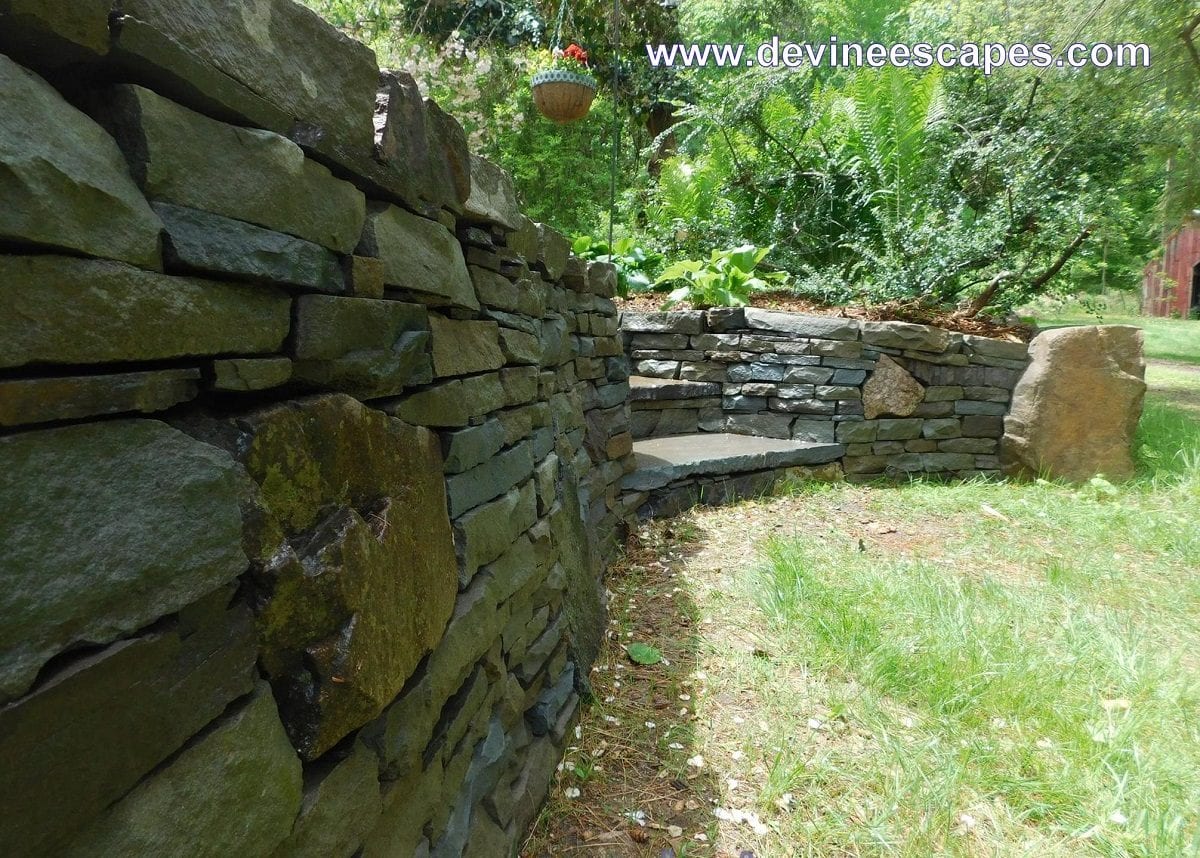
Every time a homeowner asks me to build them a set of dry stone steps I consider it an opportunity to create a work of functional art, in stone. I approach every project with fresh eyes and hope to always create something unique. In my philosophy beauty and functionality work together and neithershould ever be compromised in favor of the other.
Dry stone steps should be built with no mortar
There’s no need to “cheat” a little bit. I built all of the dry stone steps on this page myself, with zero mortar, no cement, glue or hidden rods. Thus, when I visit my work ten years later and it yet stands, level and stable underfoot. Proper dry stone walling techniques are discussed here.
To achieve stability, what you do is you set each steps so that it overlaps the one beneath it. Each stone is set firm, level and stable and stone are well fit. If the steps are adjacent to a stone wall, as is often the case, then the steps should be embedded into that wall.
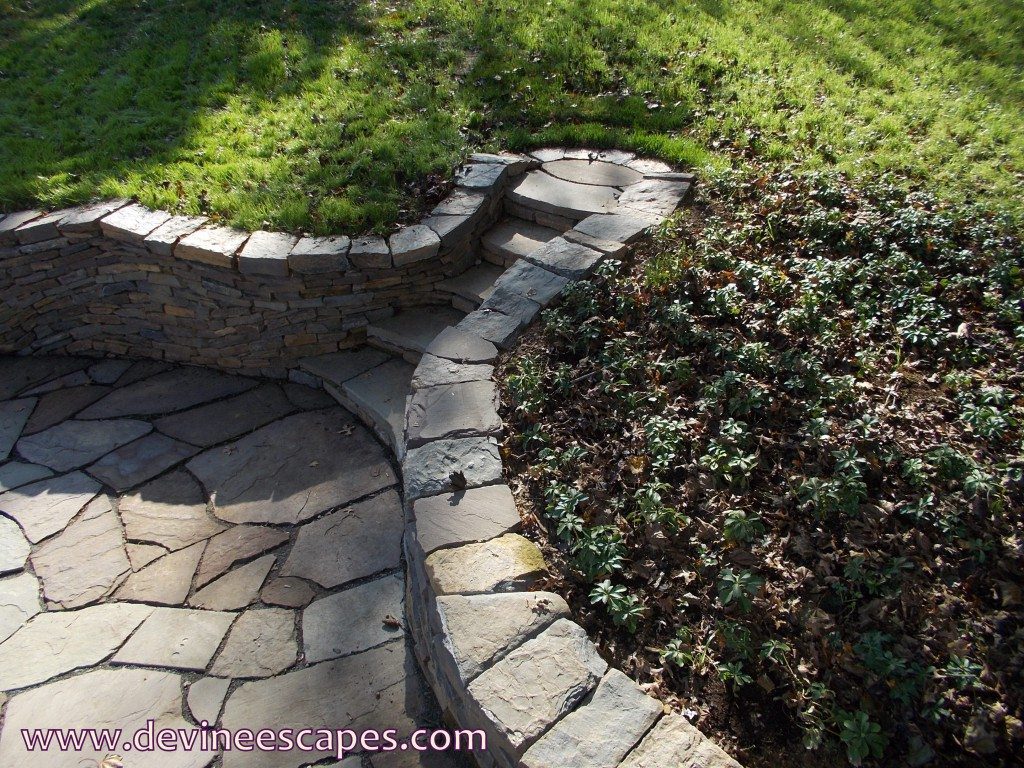 dry stone steps, wall and patio, Roxborough Philadelphia PA
dry stone steps, wall and patio, Roxborough Philadelphia PA
boulder steps and treads with risers
Whereas dry stone steps can be built in any configuration and to any aesthetic, there’s essentially two different types. There’s treads and risers, as seen in the first two examples on this page.With treads and risers, you have maybe a 4 inch thick wall stone as your riser. The riser is placed on top of the steps beneath it. On top of that is your tread, the surface you actually step upon, which can be a 2 inch thick flagstone, or similar.
Alternatively, there’s boulder steps, aka big block steps. These steps are made from 6 or 7 inch thick slabs or blocks of stone laid so that they overlap each other.
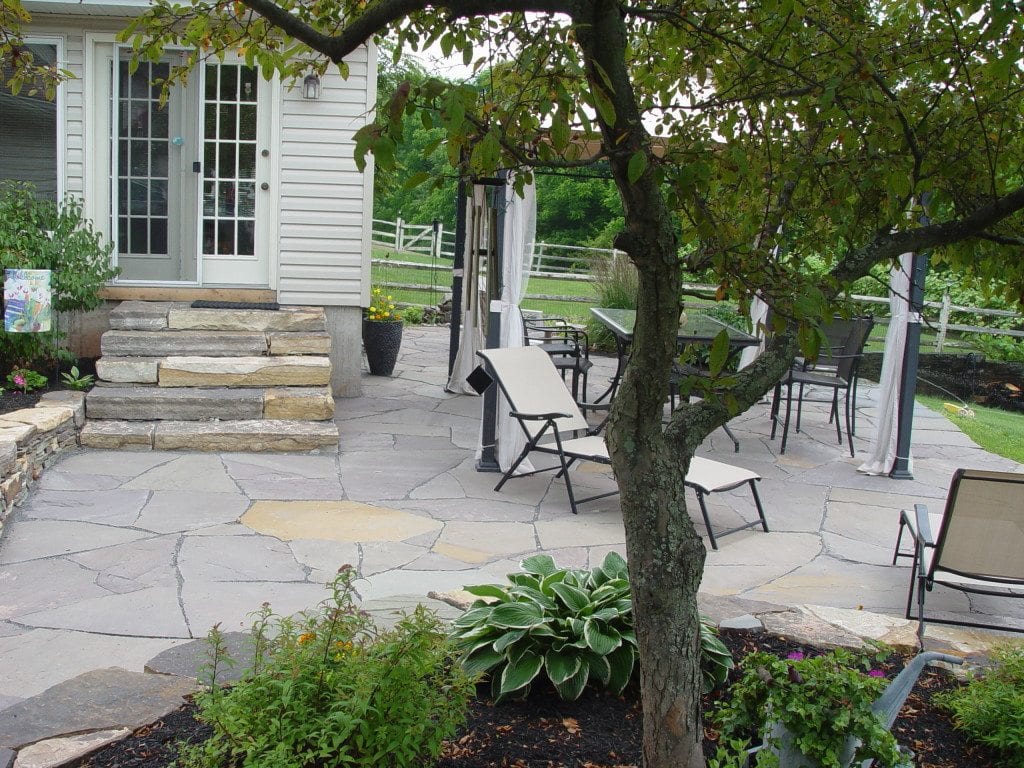
Dry stone steps, 2009. Photo taken the day that I completed building this raised patio, wall and steps.
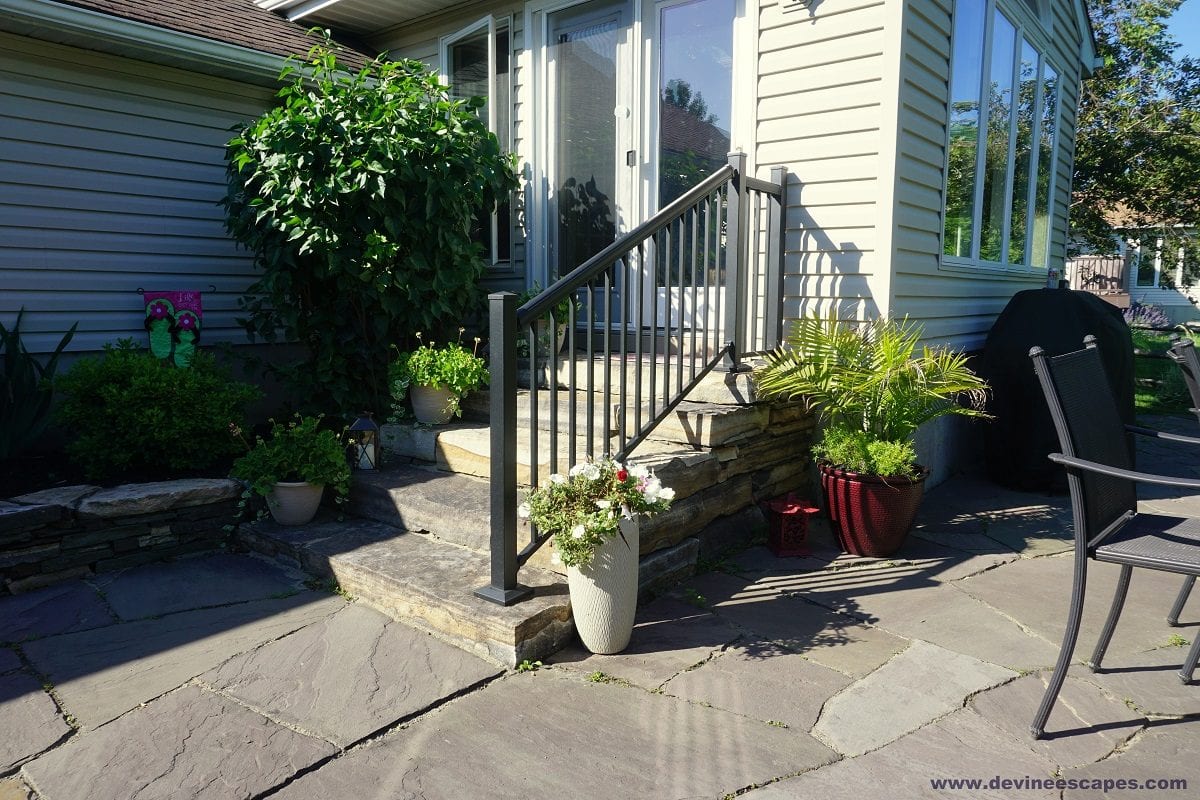
Boulder steps can be built as a stand alone feature, and built using dry stone walling techniques, as in the above example. Or, they can be built into the landscape, as in the photo below:
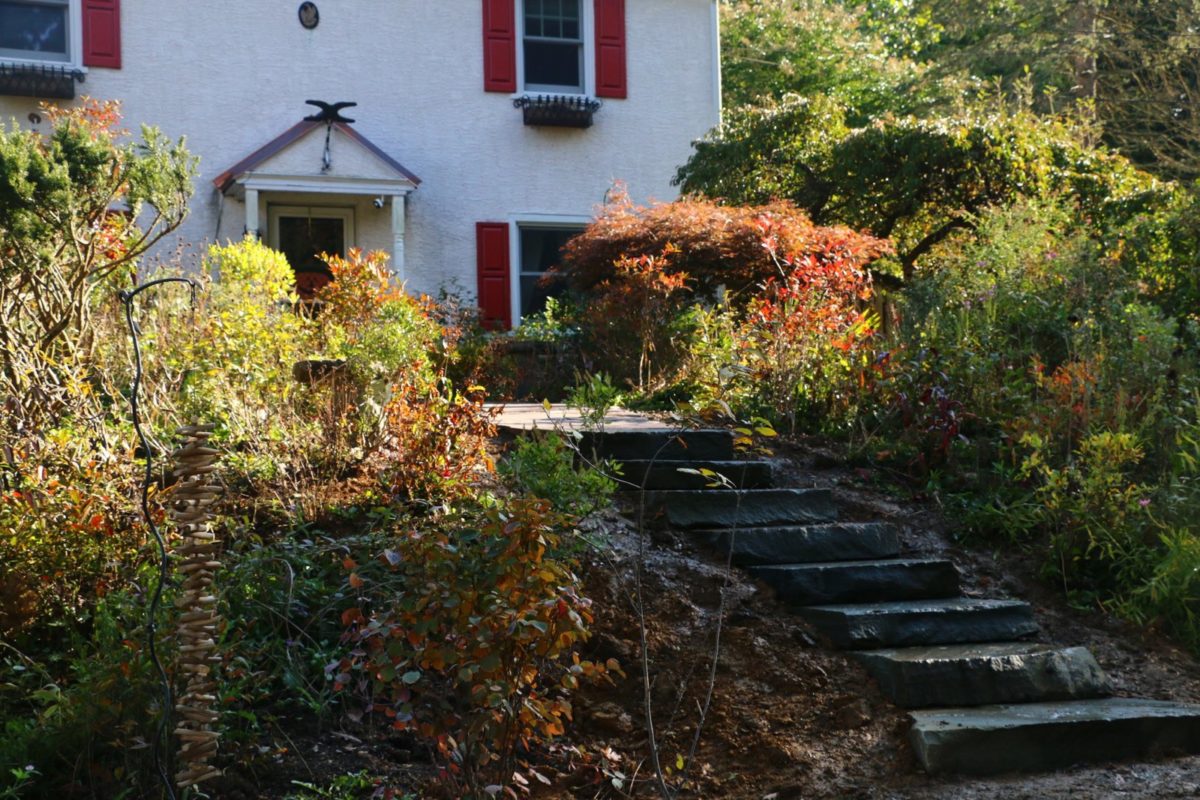
Often, dry stone steps will require side walls:
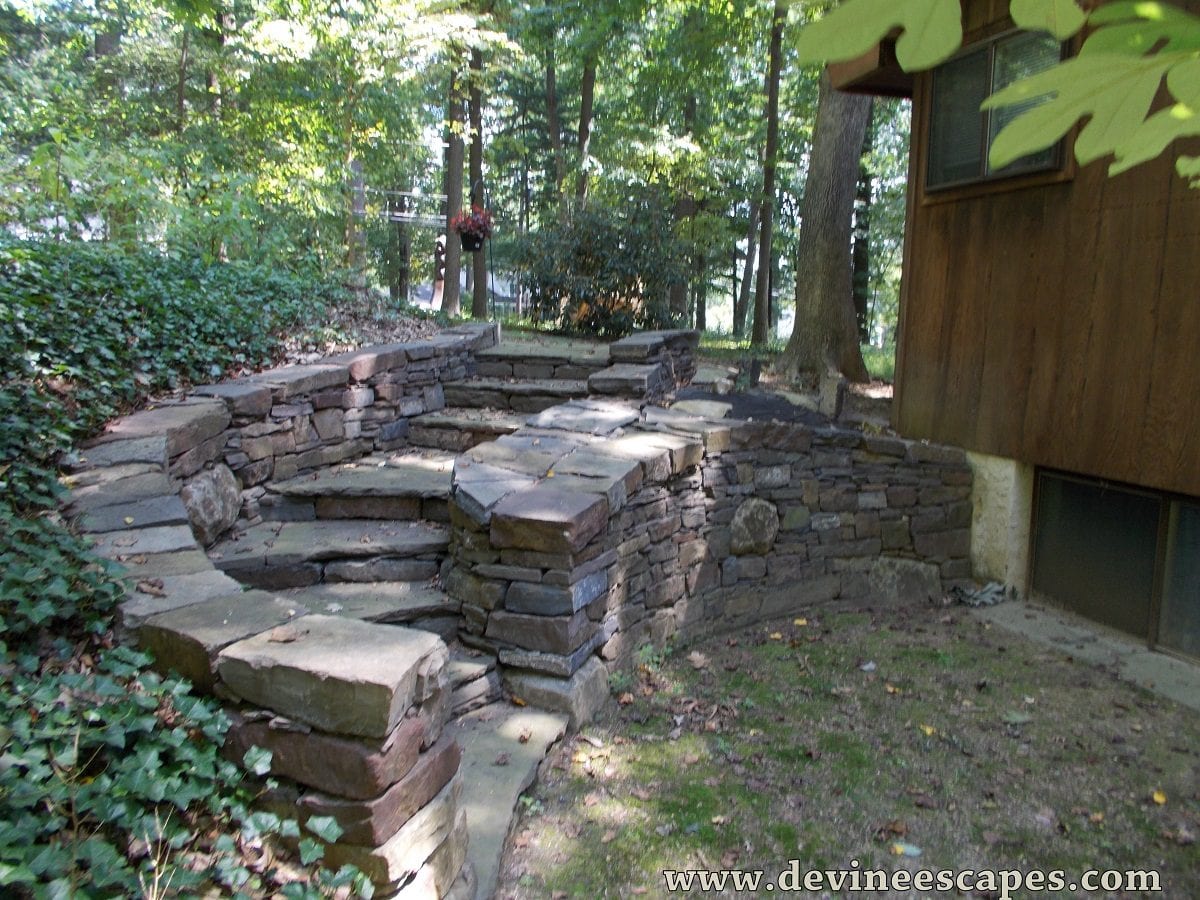
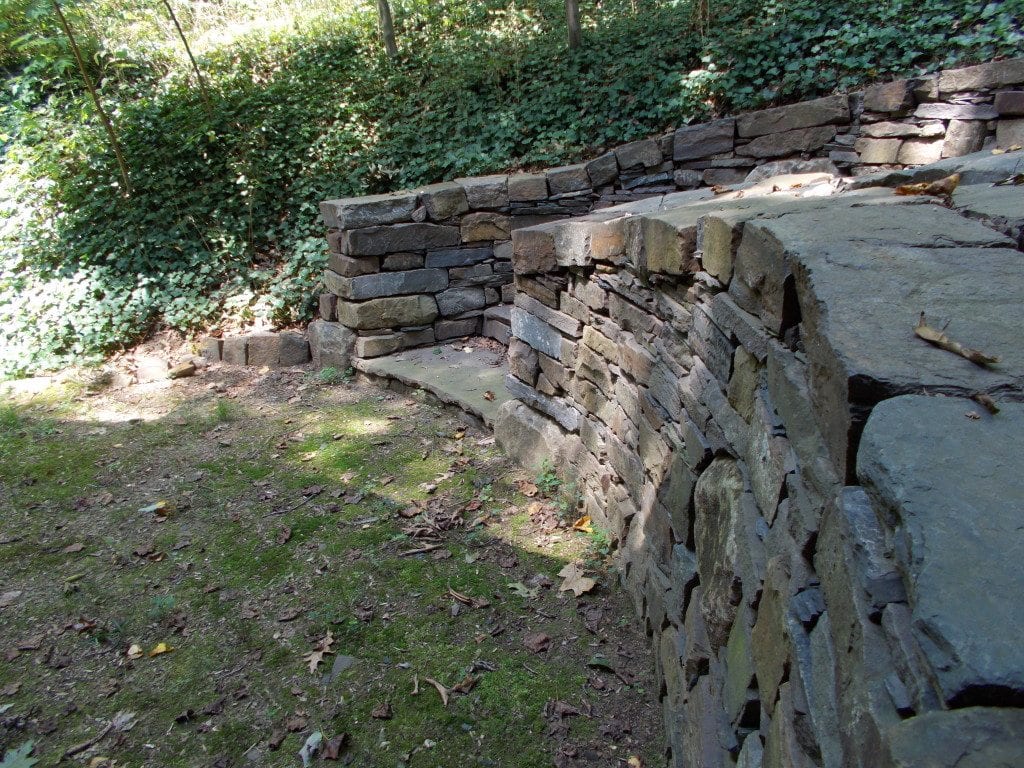
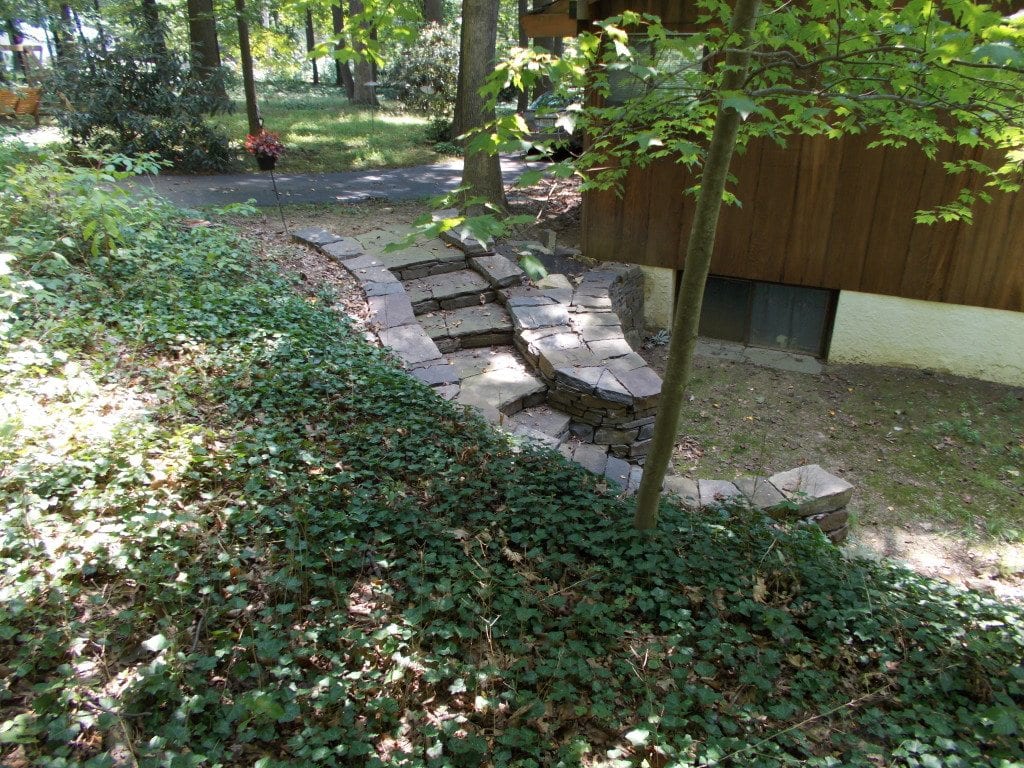
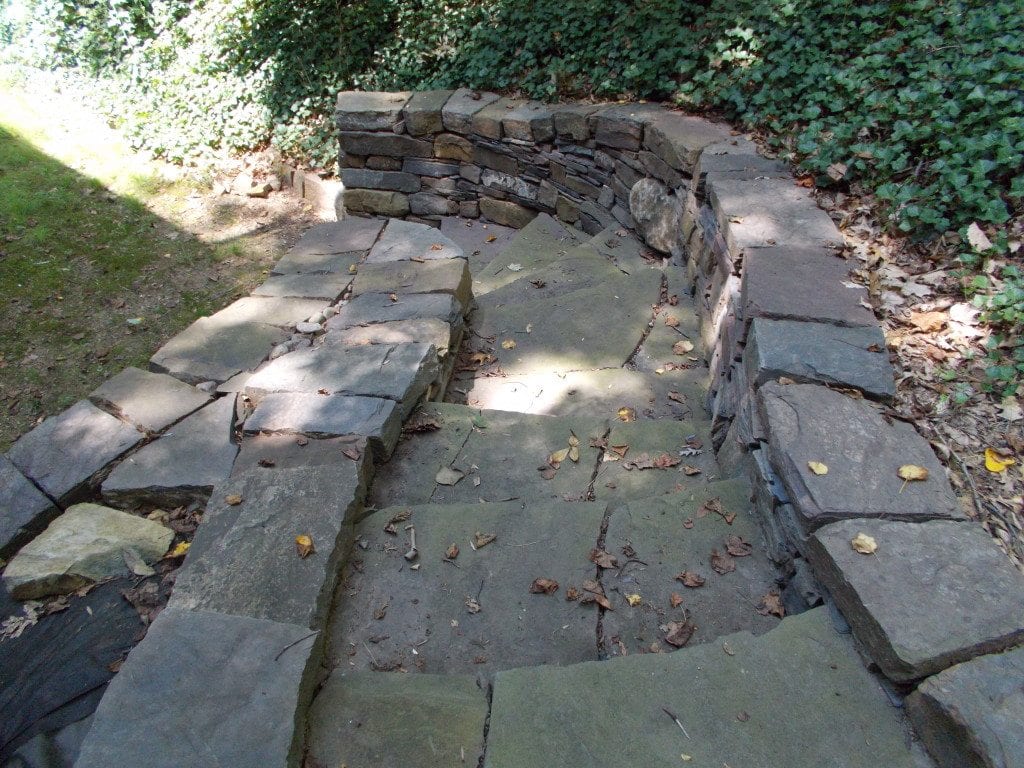
more advanced dry stone features:
Mortared steps:
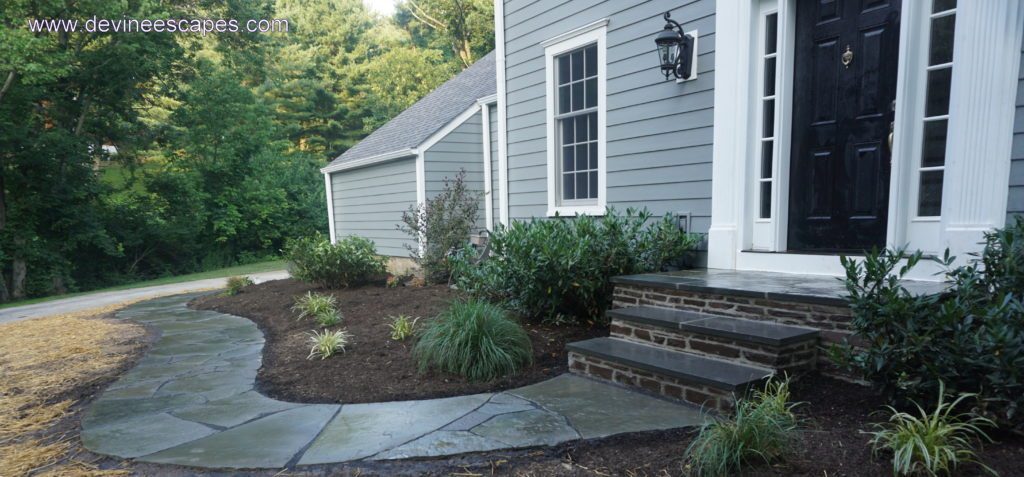
flagstone walkway and stone steps in Wayne Pennsylvania
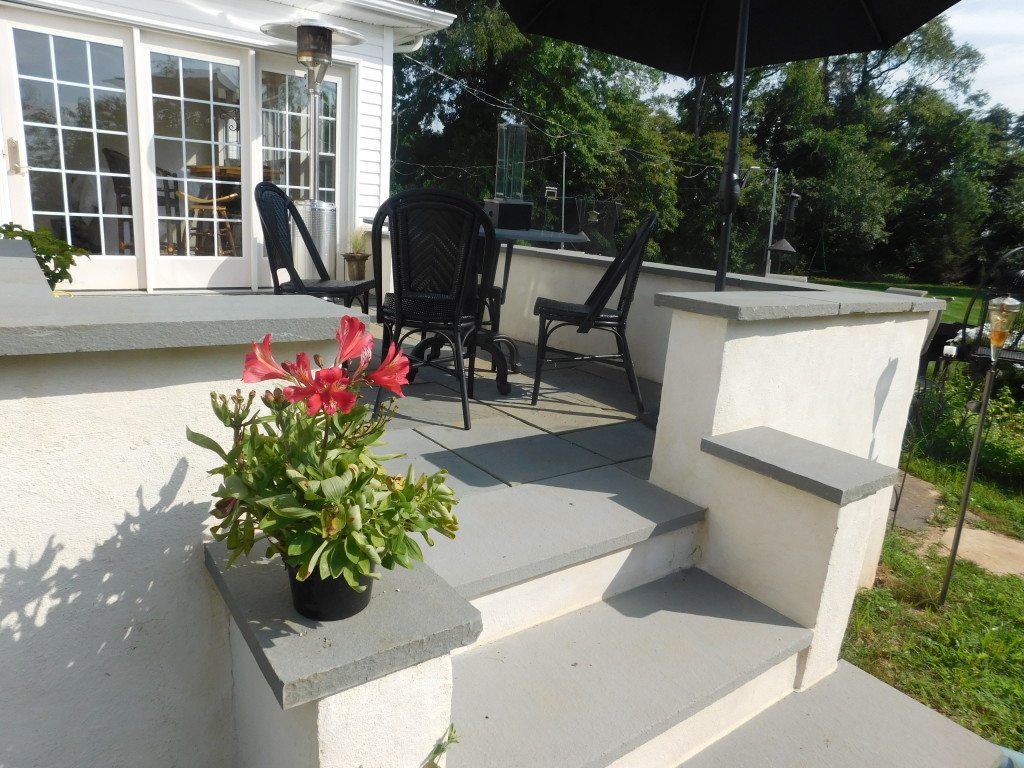
Raised patio we did back in 2014. CMU wall, with bluestone cap. A much more formal look, than I usually go with.
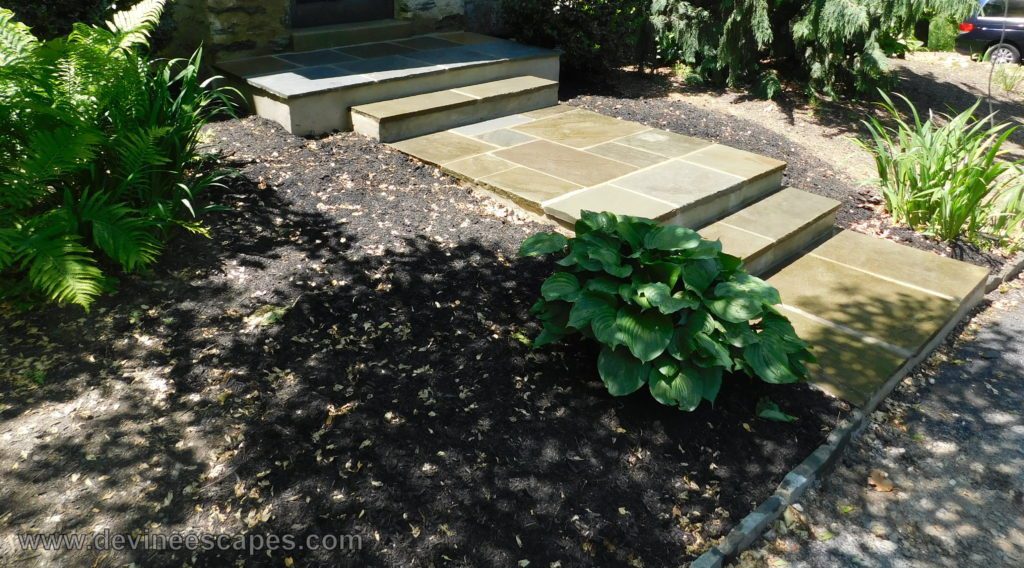
Stone entrance way, rebuilt steps and walkway in Bryn Mawr
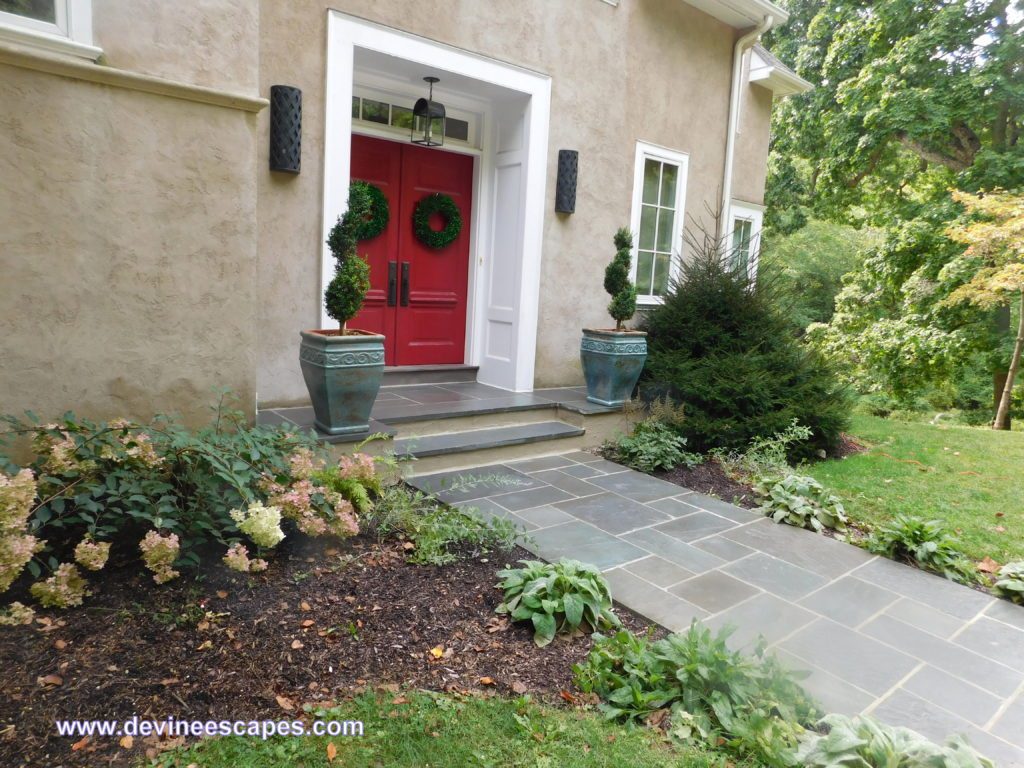
flagstone walkway and steps repaired in Paoli